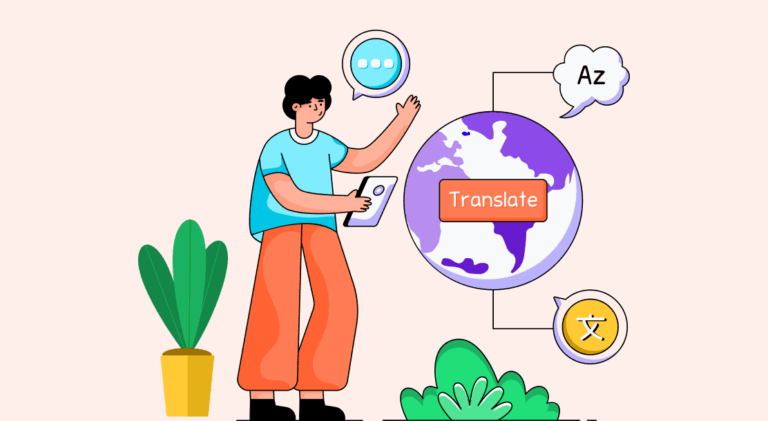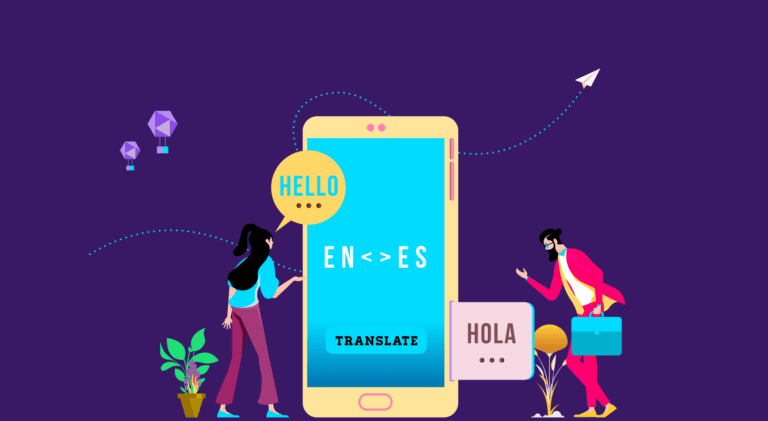
Table of Contents
- 5 Tips to Improve Translation Skills
- Conclusion
- FAQs
A common belief is that a translator’s job is to take a text written in one language and transfer (translate) it into another language. In reality, it is not as simple as that. Also, knowing the language does not mean you have translation skills. Professional translation requires much more than just language knowledge; it also needs to improve translation skills constantly.
However, it is mandatory to know the language you are translating in. For translating a document, you need to be well versed in the literature and the culture of the language. Translators must stay true to the original script, and the translated document should flow as smoothly as the original language.
With various translation tools available, it is important to remain true to the core of translating and not just rely on artificial intelligence. Our tips on improving your translation skills will help you improve your translation skills and make your translating journey easy.

5 Tips to Improve Translation Skills

In this ever-evolving, fluid business of translation, we bring you five key tips on how to improve translation skills to remain adept in this craft.
1. Read, and then read again
One of the first steps to ensure that you improve your translation skills is, as much as possible, to read meaningful content in the target language. It is impossible to know all the vocabulary of even your mother tongue, as languages are dynamic in nature and ever-evolving. To improve translation skills, a dictionary is your best friend, and you should invest in the latest versions of it.
As new words and expressions appear daily, do not be content with what you have learned already. Read as many local newspapers, magazines, and books as you can in the target language to understand the trends, jargon, and cultural nuances. Also, focus on reading other translated texts to pick up the original and target language tips.
2. Talk or converse
The best way to be fluent in a language is by constantly speaking with experts or native speakers of the target language. The more you converse, the more your confidence grows. Talking is also the ideal way for picking up on phraseology and slang in your target language. Talking to other translation professionals will also help you get their insights and the common challenges they face.
Traveling for language immersion can hone your translation skills. This will also help you to understand the linguistic differences in the same language from one region to another. Speak as regularly as possible in the target language to maintain your proficiency, as, without practice, it will deteriorate over time.
3. Back translation
To further hone your translation skills, try back translation. Pick a text in the target language and translate it back to the original text. This will improve your knowledge and help you understand the relationship between the two languages. Back translation helps in comparing translation for quality and accuracy and helps in evaluating the meaning between the original and target texts. This will also help you in two-way translations between languages.
4. Practice makes one perfect
One of the easiest tips on how to improve your translation skills is practice and more practice. The more you can translate, the better your expertise becomes. Translating and then retranslating is one of the most effective ways to improve translation skills. Select a random text or document to challenge your translation skills. Another great alternative is translating a text that others have already translated. Then compare your work with the approved one. This will help you in understanding your mistakes.
5. Using Computer-Assisted Translation (CAT) tools
Understanding the CAT tools, such as SDL Trados or MemoQ, is also important to improve your translation skills. These computer programs help with the translation speed and quality. These tools maintain consistency where multiple translators work simultaneously on a project. Remember, translation software is meant to help humans and not replace them.

Conclusion
Languages are constantly evolving and growing. To improve translation skills and be on top of your game, focus on talking, reading, and learning every day. A good translator needs to read magazines, advertisements, newspapers, etc., in the target language, as it gives insights into the culture and mindset behind the language.
FAQs
Translation skills are the ability to convey cultural elements, style, and tone, from one language to another accurately.
Translators’ basic skills are language knowledge, cultural knowledge, and writing skills.
The basic translation rules are that every translator must understand the source language, comprehend the target language, and have knowledge about the subject of the document.
Being fluent in both the source and target language is the most important requirement for translation.
Typically, the basis of translation can be defined as the process of transferring, replacing, reproducing, or interpreting the source text, material, or message, into another language while focusing on the original text’s style and meaning.
Latest Blogs
Explore how Google’s 2025 AI search updates triggered ranking chaos. Learn actionable strategies to adapt your SEO for AI Overviews, zero-click searches, and SERP volatility. Stay ahead now.
Learn how to rank on AI search engines like ChatGPT, Perplexity, and Gemini by optimizing your content for authority, structure, and relevance. Stay ahead in AI-driven search with this strategic guide.
Explore the best healthcare SEO services for your medical practice. Improve online visibility and effectively reach more patients in need of your services.
Get your hands on the latest news!
Similar Posts

Translation
5 mins read
All You Need to Know About Language Translation and Terminology Management

Translation
5 mins read
6 Reasons to Translate Content into German

Translation
5 mins read